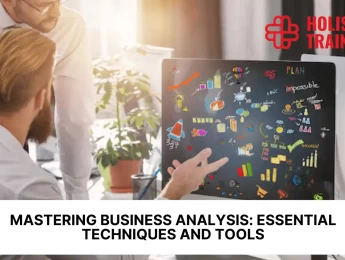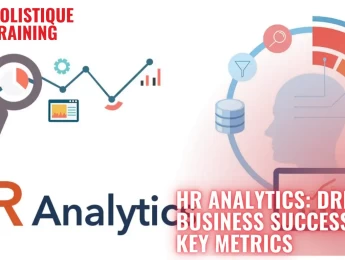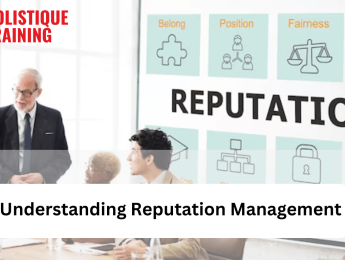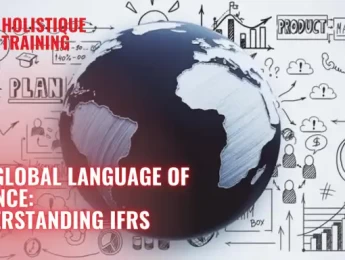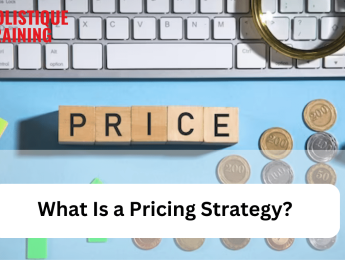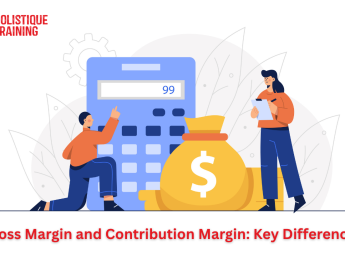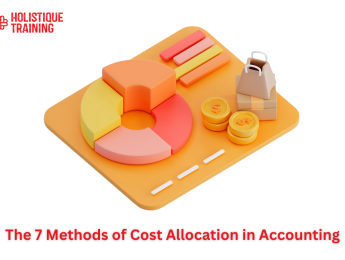- Table of Contents
- What Is Analytical Thinking?
- Data Analysis
- Problem-solving
- Research Skills
- Attention to Detail
- Logical Reasoning
- Significance of Analytical Thinking in the Modern World
- Analytical vs. Critical Thinking: What’s the Difference?
- Analytical Thinking
- Critical Thinking
- Why Do You Need Analytical Thinking Skills at Work?
- Effective Problem-solving
- Decision-making
- Strategic Planning
- Resource Optimisation
- Innovation and Creativity
- Adaptability
- Improved Communication
- Examples of Analytical Skills in the Workplace
- 1. Business Analyst
- 2. Data Scientist
- 3. Project Manager
- 4. Marketing Professional
- 5. Financial Analyst
- 6. Operations Manager
- How to Develop a Critical Thinking and Analytical Mind
- 1. Seek Diverse Perspectives
- 2. Practise Active Listening
- 3. Ask Questions
- 4. Analyse Case Studies
- 5. Embrace Data Literacy
- 6. Read Critically
- 7. Engage in Problem-solving Activities
- The Importance of Analytical Thinking in an AI-driven World
- Human Judgement
- Interpretation of Results
- Contextual Understanding
- Creative Problem-solving
- Ethical Considerations
- Conclusion
Introduction
In a world that demands quick and informed decision-making, the ability to think analytically is a game-changer. Analytical thinking serves as the compass that guides individuals through complex problems, equipping them with the skills to gather, evaluate, and decipher information with precision. Whether in the workplace or personal life, harnessing the power of analytical thinking can revolutionise how we approach challenges and seize opportunities. In this blog post, we will delve into the depths of analytical thinking, explore its various skills, distinguish it from critical thinking, highlight its significance in professional settings, provide examples of its practical application, discuss strategies to nurture a critical and analytical mind, and emphasise its increasing importance in an AI-driven world.
What Is Analytical Thinking?
Analytical thinking is not merely a cognitive skill; it is an art that empowers individuals to approach complex problems with a systematic and logical mindset. Let’s delve deeper into the core components of analytical thinking, breaking down its essential skills and their significance in navigating the intricacies of the modern world:
Data Analysis
Data analysis, a fundamental aspect of analytical thinking, involves the meticulous process of collecting, organising, and interpreting data to identify trends, patterns, and anomalies. Imagine a business trying to understand customer preferences; analytical thinkers dive into extensive datasets, extracting meaningful insights. By recognising patterns in purchase behaviour or customer demographics, businesses can tailor their strategies, enhancing customer satisfaction and loyalty.
Problem-solving
At its heart, analytical thinking is about effective problem-solving. When faced with a complex issue, analytical thinkers don’t get overwhelmed. Instead, they embrace the challenge by breaking it down into smaller, manageable parts. This deconstruction allows them to identify the root causes, understand the variables at play, and explore creative solutions. For instance, in healthcare, analytical thinkers analyse patient data, enabling doctors to diagnose diseases accurately and prescribe targeted treatments.
Research Skills
In today’s information age, conducting thorough research is invaluable. Analytical thinkers possess exceptional research skills, enabling them to sift through vast amounts of information. They not only gather relevant data but also critically evaluate the credibility and reliability of their sources. Whether it’s a scientist exploring a new hypothesis or a historian delving into ancient texts, strong research skills are the bedrock upon which analytical thinking is built.
Attention to Detail
Analytical thinkers possess an unparalleled attention to detail. They don’t just skim the surface; they delve deep, scrutinising every piece of information. This keen eye for detail often uncovers hidden nuances and insights that others might overlook. For instance, in the legal field, attention to detail is crucial. Lawyers meticulously analyse case laws, statutes, and legal documents, ensuring they build the strongest possible arguments for their clients.
Logical Reasoning
Logical reasoning is the glue that holds analytical thinking together. It involves making sense of seemingly disparate pieces of information by connecting them logically. Analytical thinkers excel at sequential reasoning, understanding the cause-and-effect relationships between different variables. In fields like engineering, logical reasoning is indispensable. Engineers analyse blueprints, ensuring every component fits together logically, creating efficient and functional structures.
Significance of Analytical Thinking in the Modern World
In our fast-paced, technology-driven society, analytical thinking is not just an asset; it's a necessity. Consider the implications of analytical thinking in fields like cybersecurity. Cybersecurity experts analyse data breaches, dissecting the methods used by hackers. By understanding these patterns, they develop robust security protocols, safeguarding sensitive information from malicious attacks.
Furthermore, in environmental science, analytical thinkers analyse climate data. Their insights drive policies and initiatives aimed at combating climate change. Through meticulous analysis, they identify trends, helping societies adapt to the changing climate and mitigate its adverse effects.
In the world of finance, analytical thinkers pore over market data. By understanding market trends and investor behaviour, they predict market fluctuations. These predictions guide investment strategies, ensuring the financial stability of individuals and organisations.
Analytical thinking is not just a skill; it's a lifeline. It empowers individuals to make informed decisions, solve intricate problems, and innovate in ways that transform societies. As we step into an era where the volume of data is overwhelming, analytical thinking becomes the guiding light, illuminating the path toward progress and innovation. By nurturing this skill, individuals become architects of change, reshaping the world one analytically derived insight at a time.
Analytical vs. Critical Thinking: What’s the Difference?
Analytical thinking and critical thinking are two distinct cognitive processes, often used interchangeably but with unique focuses and applications. Understanding these differences is pivotal in harnessing their combined power effectively.
Analytical Thinking
Analytical thinking involves systematic information dissection, focusing on breaking down complex problems and deciphering patterns. Analysts carefully examine data, uncovering insights that form the basis for informed decision-making. It's about understanding the 'what' and 'how' of a situation.
Critical Thinking
Critical thinking, on the other hand, takes a step further. It involves evaluating the validity of arguments, questioning assumptions, and considering alternative viewpoints. Critical thinkers delve into the 'why' and 'what if,' aiming to assess the logical coherence of ideas. It's about understanding the 'why' and 'so what' of a situation.
Analytical vs. Critical Thinking: A Comparative Table
Aspect | Analytical Thinking | Critical Thinking |
Focus | Breaks down complex problems. | Evaluates arguments and assumptions. |
Primary Goal | Decipher patterns and identify insights. | Assess logical validity and coherence of ideas. |
Process | Systematic dissection of information. | Questioning assumptions, exploring alternatives. |
Questions Asked | What? How? | Why? So what? |
Application | Foundation for critical thinking. | Evaluates and refines analytical findings. |
Outcome | Informed decisions based on patterns. | Informed decisions based on deep analysis. |
Emphasis | Understanding 'what' and 'how' of data. | Exploring 'why' and 'what if' arguments. |
Understanding these nuances equips individuals to utilise both types of thinking effectively. Analytical thinking provides the necessary groundwork, offering insights and information for critical thinking to evaluate and refine. Together, they form a powerful synergy, enabling comprehensive problem-solving and informed decision-making in various contexts.
Why Do You Need Analytical Thinking Skills at Work?
Analytical thinking skills are highly valued across various industries and job roles in the workplace. Despite the World Economic Forum's recognition, as highlighted in a Forbes article, that skills such as analytical thinking, creativity, and flexibility will be in high demand by 2025, only a minority of companies prioritise investing in training programmes to develop these crucial competencies. Here are a few reasons why analytical thinking is crucial in professional settings:
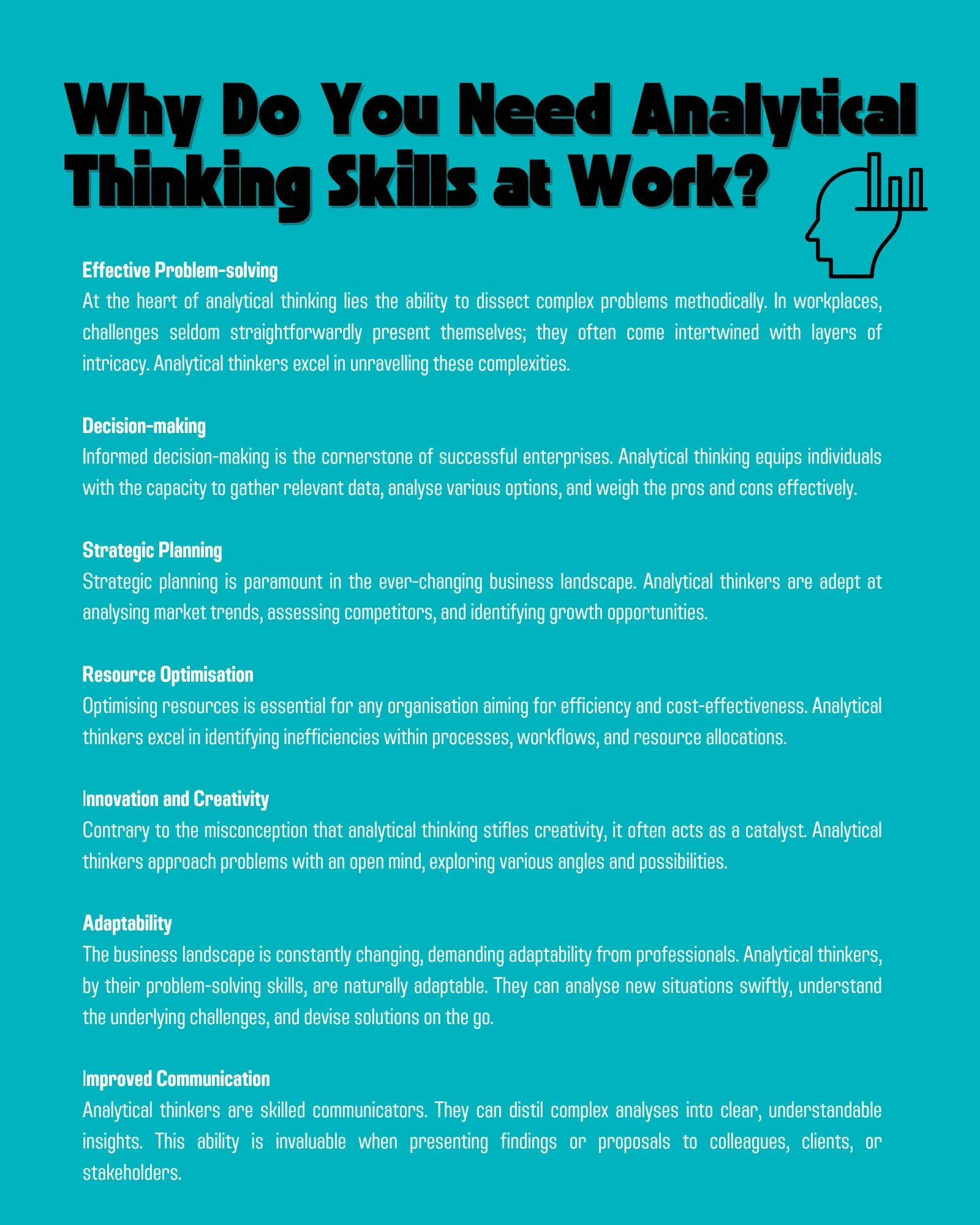
Effective Problem-solving
At the heart of analytical thinking lies the ability to dissect complex problems methodically. In workplaces, challenges seldom straightforwardly present themselves; they often come intertwined with layers of intricacy. Analytical thinkers excel in unravelling these complexities. By breaking down problems into manageable components, they can identify root causes and formulate precise, targeted solutions. According to Alison, comprehending data enhances your problem-solving skills and lets you pinpoint potential issues before they manifest preemptively.
Decision-making
Informed decision-making is the cornerstone of successful enterprises. Analytical thinking equips individuals with the capacity to gather relevant data, analyse various options, and weigh the pros and cons effectively. This process ensures that decisions are not based on intuition alone but on a thorough understanding of the situation. For example, financial analysts rely on analytical skills to assess market trends and economic indicators, making strategic investment decisions that yield profitable outcomes for businesses and investors alike.
Strategic Planning
Strategic planning is paramount in the ever-changing business landscape. Analytical thinkers are adept at analysing market trends, assessing competitors, and identifying growth opportunities. They can anticipate market shifts through their analytical lens, enabling organisations to adapt their strategies proactively. A prime example can be seen in the retail industry, where businesses leverage analytical insights to devise marketing strategies, optimise inventory, and enhance customer experiences, ensuring sustained growth and competitiveness.
Resource Optimisation
Optimising resources is essential for any organisation aiming for efficiency and cost-effectiveness. Analytical thinkers excel in identifying inefficiencies within processes, workflows, and resource allocations. By scrutinising data, they pinpoint areas where improvements can be made, leading to streamlined operations and reduced costs. In manufacturing, for instance, engineers with analytical thinking skills analyse production processes, identifying bottlenecks and implementing optimisations that enhance productivity and decrease wastage, thereby maximising the utilisation of resources.
Innovation and Creativity
Contrary to the misconception that analytical thinking stifles creativity, it often acts as a catalyst. Analytical thinkers approach problems with an open mind, exploring various angles and possibilities. This ability to consider multiple perspectives fosters creative problem-solving. In research and development, scientists employ analytical thinking to analyse existing theories, identify gaps, and formulate innovative hypotheses. This analytical creativity leads to groundbreaking discoveries, pushing the boundaries of knowledge and innovation.
Adaptability
The business landscape is constantly changing, demanding adaptability from professionals. Analytical thinkers, by their problem-solving skills, are naturally adaptable. They can analyse new situations swiftly, understand the underlying challenges, and devise solutions on the go. This adaptability ensures that businesses can navigate uncertainties effectively. In project management, for example, analytical skills enable project managers to assess risks, identify alternative courses of action, and adapt project plans according to changing circumstances, ensuring successful project completion even in dynamic environments.
Improved Communication
Analytical thinkers are skilled communicators. They can distil complex analyses into clear, understandable insights. This ability is invaluable when presenting findings or proposals to colleagues, clients, or stakeholders. Clarity in communication ensures everyone understands the rationale behind decisions and strategies, fostering a cohesive and collaborative work environment. In fields such as data journalism, professionals with analytical skills analyse vast datasets and convey the information through compelling narratives, making data-driven insights accessible and engaging for a broader audience.
In essence, analytical thinking skills are not just advantageous; they are fundamental for navigating the challenges of the contemporary workplace. Individuals possessing these skills are adept problem-solvers, strategic thinkers, innovators, and effective communicators. As businesses evolve, the demand for professionals with analytical thinking skills will continue to rise, making them invaluable assets in any organisational setting. Cultivating these skills is not merely an option; it's necessary for anyone aiming to thrive in the competitive and ever-changing world of work.
Examples of Analytical Skills in the Workplace
Analytical skills find applications in various professional scenarios. Here are a few examples of how analytical thinking is valuable in different job roles:
1. Business Analyst
Business analysts rely heavily on analytical skills to assess market trends, evaluate customer needs, and analyse financial data. By dissecting sales figures, customer behaviour, and market demands, they identify patterns and insights crucial for devising strategies that drive business growth. For instance, a business analyst might analyse customer purchasing data to identify high-demand products, enabling the company to focus marketing efforts and increase sales.
2. Data Scientist
Data scientists harness analytical skills to analyse vast datasets, develop complex models, and extract valuable insights. By applying statistical analysis and machine learning algorithms, they uncover patterns and correlations within data, facilitating data-driven decision-making. For example, in healthcare, data scientists analyse patient records to identify disease risk factors, enabling medical professionals to implement preventive measures and improve patient outcomes.
3. Project Manager
Project managers employ analytical thinking to plan projects, allocate resources, and mitigate risks effectively. They analyse project requirements, team capabilities, and potential obstacles, developing comprehensive project plans. Identifying potential risks and devising contingency plans ensure that projects stay on track and are completed successfully. For instance, a project manager might analyse past project data to estimate the time and resources needed for a similar upcoming project, optimising the planning process.
4. Marketing Professional
Analytical skills are indispensable for marketing professionals. They analyse consumer behaviour, conduct market research, and interpret data to develop targeted marketing strategies. Understanding customer preferences and market trends creates impactful marketing campaigns that resonate with specific customer segments. For example, a marketing professional might analyse social media engagement metrics to assess the effectiveness of a marketing campaign, allowing them to refine strategies for better audience engagement.
5. Financial Analyst
Financial analysts utilise analytical skills to assess financial data, identify investment opportunities, and evaluate the financial health of organisations. They analyse financial statements, market trends, and economic indicators, providing valuable insights for investment decisions. By evaluating risks and potential returns, they guide investors and businesses in making sound financial choices. For instance, a financial analyst might analyse company financial reports to assess profitability ratios and financial stability, aiding investors in making informed decisions about stock investments.
6. Operations Manager
Operations managers use analytical skills to optimise processes, enhance efficiency, and reduce costs. They analyse workflow data, identify bottlenecks, and implement process improvements. By scrutinising operational data, they streamline supply chains, reduce wastage, and enhance productivity. For example, an operations manager might analyse production efficiency data to identify areas for improvement, leading to reduced production time and increased output, thereby maximising operational efficiency.
Analytical skills play a pivotal role in transforming raw data into actionable insights in each of these professions. The professionals who excel in analytical thinking contribute significantly to their respective fields, drive innovation, improve efficiency, and foster growth within their organisations. As businesses continue to rely on data-driven strategies, the demand for individuals with strong analytical skills will only intensify, making these skills not just valuable but indispensable in the modern workplace.
How to Develop a Critical Thinking and Analytical Mind
While some individuals naturally possess analytical thinking skills, it is a competency that can be developed and honed through deliberate practice, according to an article by Simplilearn. Here are a few strategies to cultivate a critical thinking and analytical mind:
1. Seek Diverse Perspectives
Engaging in discussions with people from diverse backgrounds and viewpoints is a powerful way to enhance critical thinking. Exposing yourself to different perspectives challenges your assumptions and encourages you to consider alternative viewpoints. Join discussion groups, attend seminars, and engage in debates to gain insights from various angles. This exposure helps you develop a more comprehensive understanding of complex issues, honing your ability to analyse situations from multiple perspectives.
2. Practise Active Listening
Active listening is the foundation of critical and analytical thinking. When you actively listen, you're not just hearing words but understanding the context, emotions, and underlying messages. Empathetically putting yourself in others’ shoes can help you better comprehend others' perspectives. This skill encourages open-mindedness, enabling you to objectively evaluate arguments before forming conclusions. Active listening also fosters effective communication, making collaborating and engaging in meaningful discussions easier.
3. Ask Questions
Asking questions is a fundamental aspect of critical thinking. It involves challenging assumptions, seeking clarifications, and exploring deeper layers of information. Don’t be afraid to question statements, theories, or even your own beliefs. Probing questions encourages critical examination, leading to a deeper understanding of issues. By consistently questioning, you can uncover hidden biases, identify logical gaps, and refine your thought processes. This habit of inquiry enhances both analytical and critical thinking skills.
4. Analyse Case Studies
Analysing real-world case studies provides valuable opportunities to apply analytical thinking skills to practical situations. Case studies present complex problems organisations or individuals face, requiring in-depth analysis and problem-solving. You enhance your analytical skills by dissecting these cases, identifying key issues, and proposing solutions. Moreover, you develop the ability to evaluate the effectiveness of your solutions critically. This process allows you to understand the nuances of real-world problems, preparing you for similar challenges in your professional journey.
5. Embrace Data Literacy
In the age of information, data literacy is essential for analytical thinking. Learn to work with data effectively, develop skills in data analysis, and utilise data visualisation tools to draw meaningful insights. Understanding how data is collected, processed, and interpreted equips you to critically evaluate the credibility of information sources. Data literacy lets you discern relevant data from noise, enabling precise analysis and informed decision-making. Online courses, tutorials, and workshops on data analysis tools and techniques can significantly enhance your data literacy skills.
6. Read Critically
Developing a critical and analytical mind involves reading critically. When you read, don’t just absorb information; question the sources, evaluate the evidence, and consider the author's perspective. Critical reading enables you to identify biases, logical fallacies, and argument gaps. It also allows you to discern credible sources from unreliable ones, enhancing your ability to gather reliable information for analysis. Reading diverse materials, from academic articles to opinion pieces, hones your analytical skills by exposing you to various writing styles and argumentative approaches.
7. Engage in Problem-solving Activities
Engage in problem-solving activities and puzzles that challenge your analytical skills. Chess, Sudoku, logic puzzles, and strategic board games stimulate your brain, encouraging logical reasoning and analytical thinking. These activities enhance your ability to identify patterns, make connections, and think several steps ahead. By solving complex problems in a controlled and enjoyable environment, you train your mind to approach real-world challenges with a similar structured mindset, honing your analytical thinking skills.
Incorporating these strategies into your daily life enhances your critical thinking and analytical skills and transforms them into habits. Cultivating a critical and analytical mindset is not an overnight achievement but a continuous journey. By embracing these practices, you develop a robust foundation for making informed decisions, solving complex problems, and thriving in the multifaceted world of the 21st century.
The Importance of Analytical Thinking in an AI-driven World
Analytical thinking gains even greater importance as we navigate an increasingly AI-driven world. While AI systems can process vast amounts of data and generate insights, they rely on human analysts to interpret, contextualise, and apply those insights to real-world scenarios. Here's why analytical thinking remains crucial:
Human Judgement
AI systems excel at data analysis and generating recommendations but cannot exercise judgment. Human judgement involves interpreting complex situations, understanding the broader context, including ethical, social, and emotional factors, and making decisions that align with organisational goals and societal values. Analytical thinkers, armed with their ability to evaluate situations critically, play a crucial role in making ethical and strategic decisions where human values and ethical considerations come into play.
Interpretation of Results
AI-generated insights are only as good as the human interpreters behind them. Analytical thinkers can interpret AI-generated results, ensuring accuracy, relevance, and contextual applicability. They can identify biases, errors, or outliers in the data, adding a layer of human intelligence to the AI-generated information. For example, in healthcare, while AI systems can analyse medical images, radiologists use their analytical skills to interpret the results in the context of a patient’s medical history, providing a more comprehensive diagnosis.
Contextual Understanding
Human beings possess an innate ability to understand the broader context of situations, considering cultural, social, and emotional elements that influence decision-making. Analytical thinkers integrate this contextual understanding with data-driven insights, ensuring that decisions are holistic and sensitive to the complexities of real-world scenarios. Analytical thinkers use data in fields like sociology or anthropology to understand societal trends. Still, their critical analysis includes the nuances of human behaviour and cultural dynamics, which are vital for comprehensive insights.
Creative Problem-solving
While AI systems excel at structured tasks, they often struggle with ambiguity and unstructured problems. Analytical thinking complements AI by fostering creative problem-solving. Analytical thinkers can explore unconventional solutions, identify innovative approaches, and navigate ambiguous situations effectively. For instance, in the design field, creative professionals employ analytical thinking to analyse user data but rely on their creativity to design user experiences that resonate emotionally with people. In this dimension, AI currently falls short.
Ethical Considerations
As AI continues to advance, ethical considerations become paramount. Analytical thinkers are instrumental in assessing the ethical implications of AI technologies, ensuring that these innovations align with moral values and societal norms. They critically evaluate the consequences of AI applications, including privacy, bias, and social justice issues, guiding AI systems' ethical development and deployment. Ethical analysts, a role growing in demand, use their analytical skills to assess the ethical ramifications of AI decisions, offering valuable insights for responsible AI development.
Conclusion
Analytical thinking is not just a skill; it's a superpower that empowers individuals to navigate the complexities of the modern world. By developing and honing analytical thinking skills, you’re enhancing your problem-solving abilities and shaping the future of your career and personal life. The ability to decipher data, evaluate information critically, and make well-informed decisions is a game-changer in any field.
Unlock your full potential with our exclusive course, ‘Business Analysis Skills and Techniques.’ This course, designed by industry experts, provides immersive learning experiences, hands-on case studies, and expert guidance to sharpen your analytical skills. Whether you’re a seasoned professional or just starting your journey, this course equips you with the tools and insights needed to excel in today’s data-driven world. Don’t just adapt to change; lead the change with the analytical prowess gained from our course. Enrol now and transform your analytical thinking into a strategic advantage, propelling your career to new heights!





